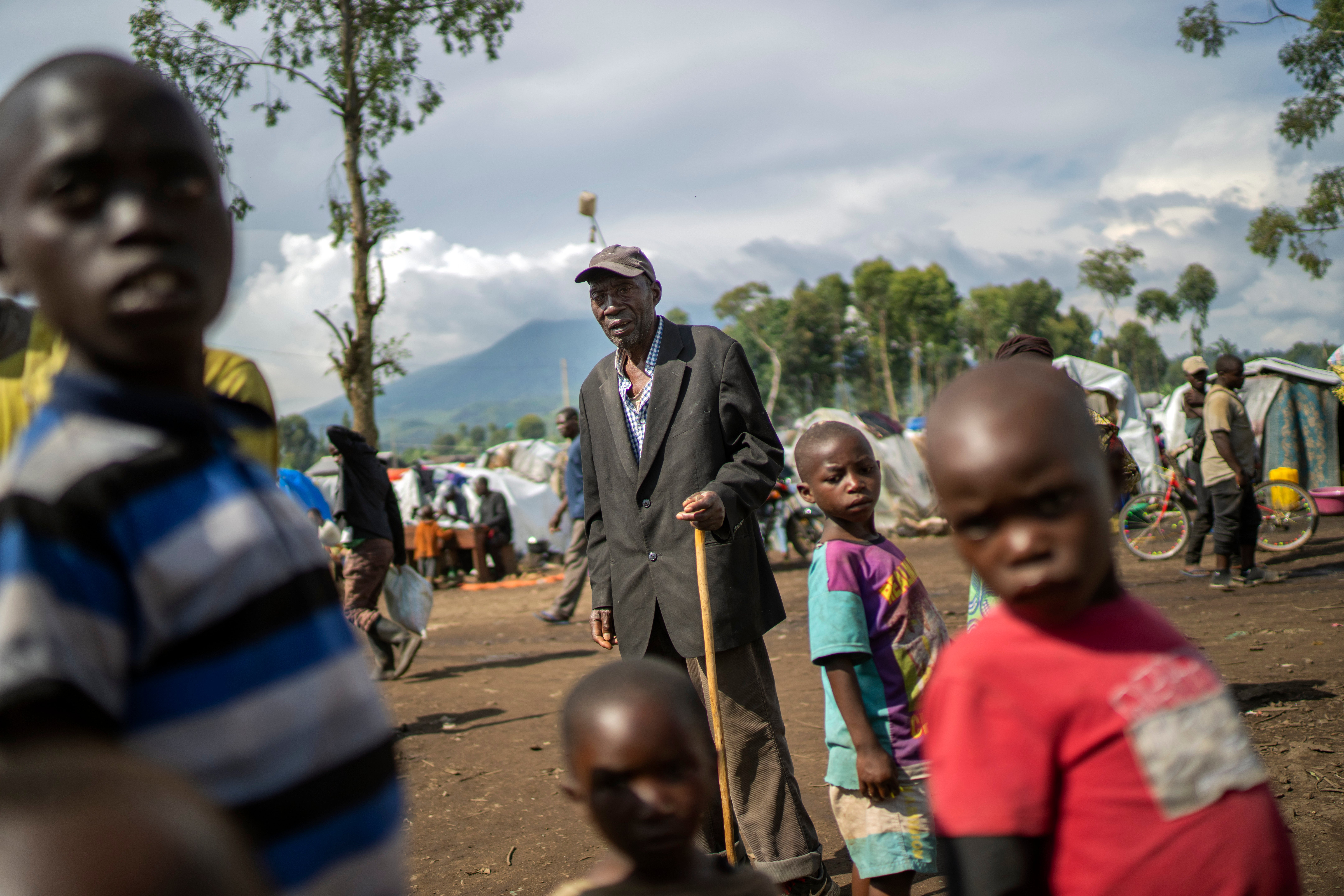More pressure on Rwanda as France condemns backing rebels
International pressure is growing on Rwanda as France is the latest party to openly accuse the country of supporting armed rebels in neighboring eastern Congo _ with possible repercussions for foreign aid that Kigali has long enjoyed

Your support helps us to tell the story
From reproductive rights to climate change to Big Tech, The Independent is on the ground when the story is developing. Whether it's investigating the financials of Elon Musk's pro-Trump PAC or producing our latest documentary, 'The A Word', which shines a light on the American women fighting for reproductive rights, we know how important it is to parse out the facts from the messaging.
At such a critical moment in US history, we need reporters on the ground. Your donation allows us to keep sending journalists to speak to both sides of the story.
The Independent is trusted by Americans across the entire political spectrum. And unlike many other quality news outlets, we choose not to lock Americans out of our reporting and analysis with paywalls. We believe quality journalism should be available to everyone, paid for by those who can afford it.
Your support makes all the difference.International pressure is growing on Rwanda as France is the latest party to openly accuse the country of supporting armed rebels in neighboring eastern Congo — with possible repercussions for foreign aid that Kigali has long enjoyed.
For months, the renewed attacks by the M23 rebels have angered Congo’s government and led to talk of war in eastern Congo, a volatile region rich in minerals critical to much of the world's technology. A report by United Nations experts earlier this year said they had “solid evidence” that Rwanda’s armed forces were backing the rebels, and the United States has openly asked Rwanda to stop it.
Now France has joined the criticism of Rwanda. On Tuesday, its foreign affairs ministry in a statement condemned “Rwanda’s support for M23,” and its junior minister in charge of development during a visit to Congo warned that the M23 “must stop the fighting” and withdraw. The junior minister, Chrysoula Zacharopoulou, is in charge of implementing aid policies, including toward Rwanda.
Rwanda’s government has not responded publicly to the comments of France, which could affect recent efforts by the countries to repair ties. A government spokesman on Wednesday told The Associated Press it was too early to comment.
Longtime President Paul Kagame last week on the sidelines of the U.S.-Africa summit denied that Rwanda had created the trouble in eastern Congo and called it “Congo’s problem.”
But concerns are growing that international partners could back their warnings with cuts in aid to Rwanda, which has long benefited from outside support in health, defense and other areas. Belgium, a former colonizer of Rwanda, also asked the country to stop supporting the M23 rebels earlier this month.
The public pressure on Rwanda over its alleged support of the M23 is notable. Human rights watchdogs and others have long accused Rwanda of using the international community’s guilt over its delayed response to the country’s horrific 1994 genocide to dampen criticism of its actions including the stifling of opposition at home and abroad.
The genocide killed more than 800,000 ethnic Tutsi and moderate Hutu who tried to protect them, and it remains a deeply sensitive subject. Rwanda’s president and his government in recent weeks have expressed concern for the ethnic Tutsi in eastern Congo who are affected by the current violence.
The M23 is largely made up of Congolese Tutsi. It has denied having the backing of Rwanda's armed forces.
Rwanda in turn has accused Congo of backing another armed group in eastern Congo, the FDLR, a Hutu group opposed to Tutsi influence. Congo has denied it. Efforts at peace talks have yielded little as both sides accuse the other of breaking a fragile cease-fire agreed to last month in Angola.
Relations between Rwanda and Congo have been fraught for decades. Rwanda alleges that Congo gave refuge to the Hutus who carried out the genocide. In the late 1990s, Rwanda twice sent its forces deep into Congo, joining forces with Congolese rebel leader Laurent Kabila to depose the country’s longtime dictator Mobutu Sese Seko. The Rwandan forces in Congo were widely accused of hunting down and killing ethnic Hutu, even civilians.
One example of the significant aid that Rwanda continues to receive from partners is 20 million euros from the European Union, announced this month, to support its defense forces’ deployment against extremists in northern Mozambique.
Rwanda is considered to have one of the strongest militaries in Africa and is the third largest troop contributor to U.N. peacekeeping missions, according to the latest U.N. data in October.
___
Associated Press writers Sylvie Corbet in Paris and Ignatius Ssuuna in Kigali, Rwanda, contributed.